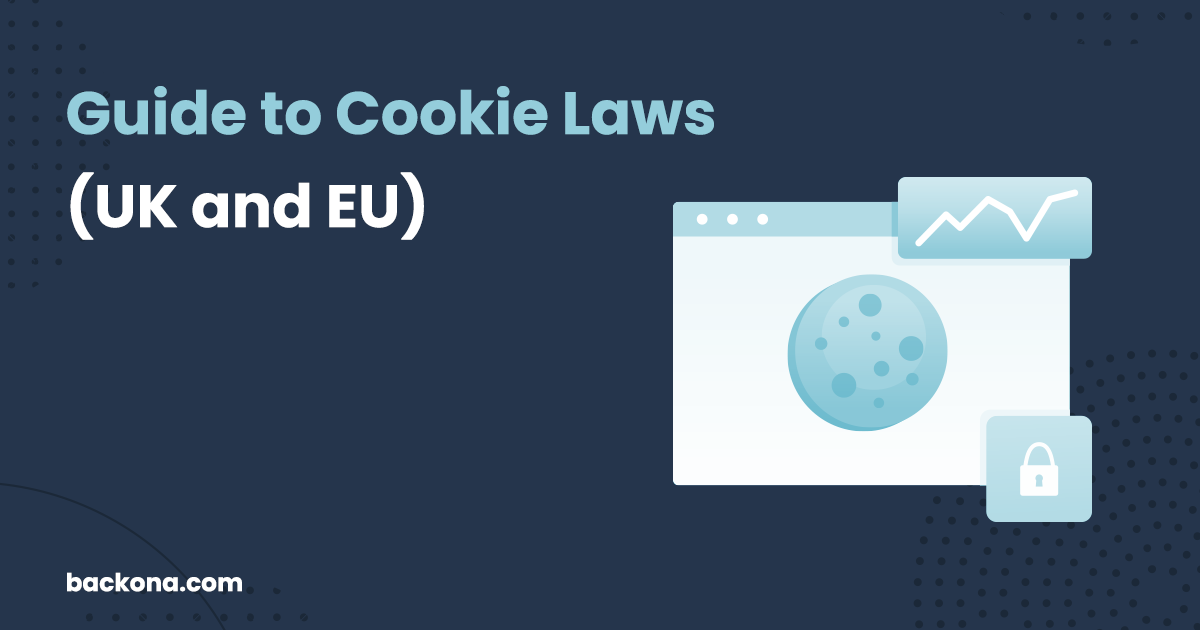Introduction

As businesses increasingly conduct operations online, ensuring user data privacy is becoming more critical. This guide aims to provide an overview of the key aspects of cookie laws in the UK and the EU, including the General Data Protection Regulation (GDPR) and the Privacy and Electronic Communications Regulations (PECR).
What are Cookies?
Cookies are small text files that are placed on a user’s device when they visit a website. They’re used for various purposes like tracking user behavior, remembering user preferences, and enabling site functionality.
Key Regulations
General Data Protection Regulation (GDPR)
GDPR, which came into effect in May 2018, is a regulation in EU law on data protection and privacy. Even though the UK has left the EU, the UK GDPR aligns closely with the EU GDPR.
Under GDPR, personal data must be processed lawfully, transparently, and for a specific purpose. Once that purpose is fulfilled, the data should be deleted. Cookies that can identify an individual (directly or indirectly) are considered personal data under GDPR.
Privacy and Electronic Communications Regulations (PECR)
The PECR specifically covers the use of cookies and similar technologies. Under PECR, businesses must:
- Inform users about the cookies used on their website.
- Explain what the cookies are doing.
- Obtain consent to store cookies on users’ devices.
Consent
Both GDPR and PECR require businesses to obtain valid consent before using cookies. Consent must be freely given, specific, informed, and unambiguous. This means pre-ticked boxes or any equivalents, such as sliders defaulted to ‘on’, cannot be used.
Users must also be given an easy way to withdraw their consent at any time.
Cookie Banners and Policies
Cookie banners are a common way to obtain consent. They should:
- Clearly explain the types of cookies you use and their purpose.
- Provide an option to accept or reject cookies. This should not be a pre-ticked box or default setting.
- Not prevent access to your site if the user doesn’t accept all cookies.
Your website should also have a clear and accessible cookie policy that explains what cookies are, how you use them, and how users can control or delete them.
Regular Audits
Regularly auditing your cookie use helps ensure compliance. The audit should identify what cookies your site uses, what data they collect, who they share it with, and how long they store the data.
Now that you have gained an understanding of cookie laws and their implications, let’s explore:
five effective strategies to ensure your website’s compliance:
- DIY (Do-It-Yourself) Approach: For smaller businesses with basic needs, developing an in-house cookie consent solution might be an option. You’d need to design a simple and clear cookie banner, ensure it’s correctly implemented on your website, and have a system for recording user consents. However, this might not be sufficient for complex needs and is time-consuming.
- Cookie Consent Management Platforms (CMP): Tools like OneTrust, Cookiebot, and Consentmanager.net offer comprehensive solutions to help manage cookie consent in accordance with GDPR and other regulations. These platforms automate the process, including obtaining consent, record keeping, and conducting regular cookie audits.
- Open-Source Solutions: There are several open-source projects like Osano and Tarteaucitron.js that can help manage cookie consent. While they require some technical know-how to implement, they offer a more affordable solution and can be customized to your specific needs.
- Website Builder Plugins: If your website is built on platforms like WordPress, Joomla, or Shopify, you can find plugins or extensions designed for cookie consent management. Examples include GDPR Cookie Consent Banner (WordPress) and Easy GDPR + Cookie Bar (Shopify).
- Hiring a Professional Analytics and Web Development Company: If your company’s requirements are complex, or you prefer a more hands-off approach, consider engaging a professional web development and analytics company. They can provide a custom-built cookie consent solution, ensure it integrates seamlessly with your site, and manage ongoing compliance. They can also provide you with insightful analytics data while ensuring the process aligns with data privacy laws.
Conclusion
While cookie laws can seem daunting, they play a vital role in protecting user data privacy. Regularly reviewing your practices, being transparent with your users, and obtaining clear consent can go a long way in maintaining compliance.
Remember, this guide provides a general overview, and you should always seek legal advice specific to your circumstances.
Disclaimer: This guide is for informational purposes only and should not be considered legal advice. Please consult with a legal expert to ensure compliance with all applicable laws and regulations.

Leave a Reply